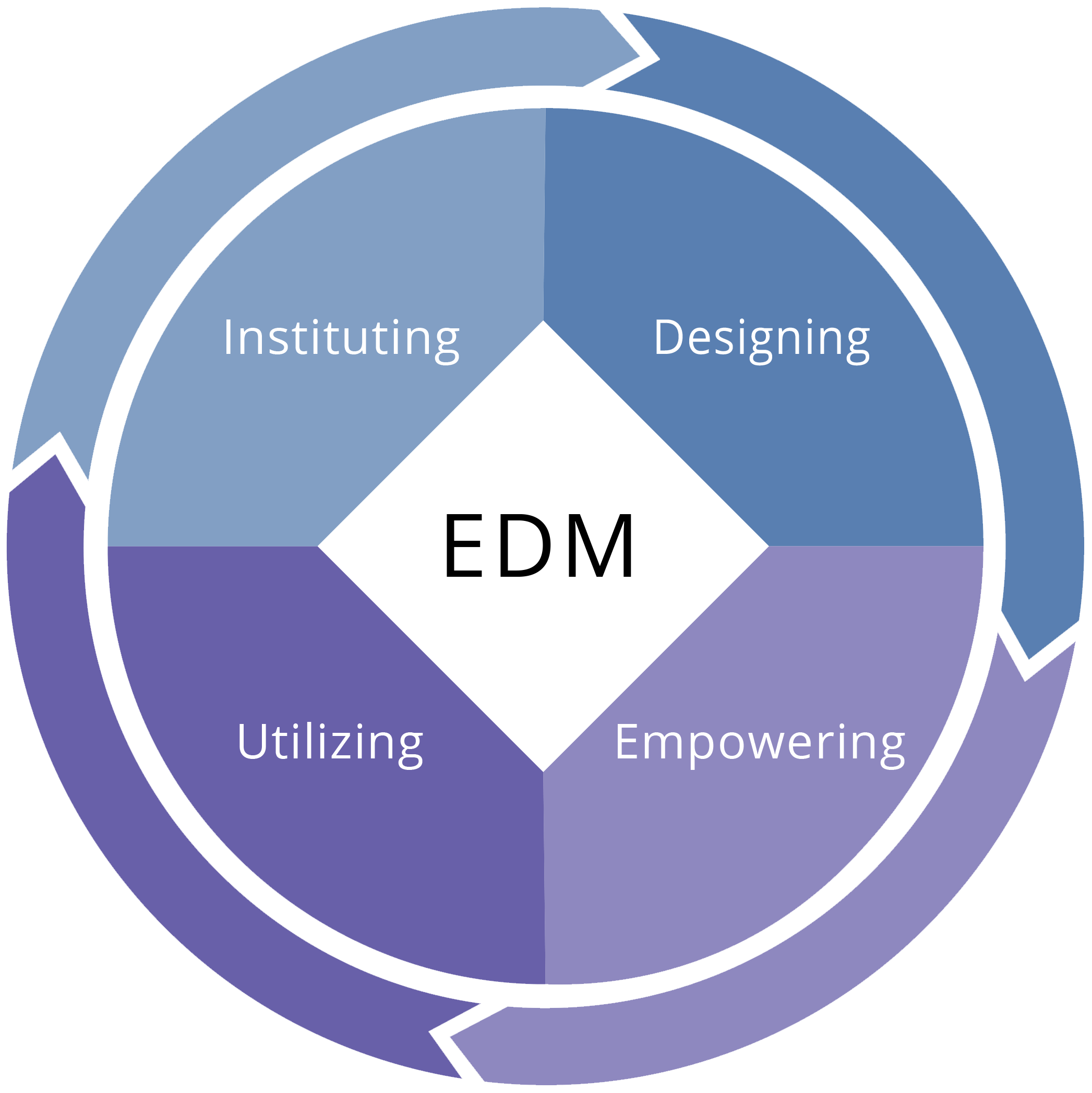
Enterprise Data Management (EDM)
In today’s hyper-connected world, data is not just a byproduct of business operations—it’s the lifeblood of innovation and growth. With 60-80% of an organization’s value tied to its data, harnessing this resource effectively is essential for enhancing customer satisfaction, boosting operational efficiency, and unlocking new revenue streams through data-driven services. To thrive, organizations need more than just metrics; they require a comprehensive data strategy that ensures data quality, security, and effective management. A workforce proficient in data management, supported by a culture that values data as a strategic asset, can drive competitive advantage and sustained success.
INCATech’s Enterprise Data Management services are designed to help you master the complexities of modern data ecosystems and achieve transformational outcomes through a structured, strategic approach.
Enterprise Data Management Framework
Establishing – The fundamental activities needed to ensure the organization understands data is an asset that holds value.
Designing – The activities needed to align business strategy and requirements for what data needs to be managed.
Empowering – Maximizing the data flow in your organization.
Utilizing – Making your organization more in sight-driven and learning-oriented.
Key Benefits Of Enterprise Data Management
-
INCATech helps organizations develop and implement a robust data strategy that aligns with their business goals. This service includes establishing data governance frameworks to ensure that data is managed as a valuable asset across the enterprise.
Key Benefits:
1. Aligns data management practices with business objectives.
2. Ensures data consistency, accuracy, and integrity.
3. Enhances decision-making by providing reliable and timely data.
Mitigates risks
-
INCATech helps organizations develop and implement a robust data strategy that aligns with their business goals. This service includes establishing data governance frameworks to ensure that data is managed as a valuable asset across the enterprise.
Key Benefits:
1. Aligns data management practices with business objectives.
2. Ensures data consistency, accuracy, and integrity.
3. Enhances decision-making by providing reliable and timely data.
4. Mitigates risks related to data breaches and non-compliance with regulations.
-
INCATech provides end-to-end data integration services that enable seamless data flow across disparate systems and platforms. We ensure that your data is interoperable and can be easily accessed and utilized across the enterprise.
Key Benefits:
Breaks down data silos, enabling a unified view of information.
Enhances operational efficiency by automating data exchanges between systems.
Facilitates real-time analytics and decision-making.
Supports scalability by integrating new data sources as the organization grows.
-
Our Data Security and Compliance service helps organizations safeguard their data against breaches and unauthorized access. We implement robust security protocols and ensure compliance with industry-specific regulations and standards.
Key Benefits:
Protects sensitive data from cyber threats and breaches.
Ensures compliance with regulatory requirements such as GDPR, HIPAA, and others.
Reduces the risk of financial penalties and reputational damage.
Builds customer and stakeholder trust by demonstrating a commitment to data security.
-
We empower organizations to unlock the full potential of their data through advanced analytics and AI integration. This service includes implementing predictive analytics, machine learning models, and generative AI to drive insights and innovation.
Key Benefits:
Enhances decision-making with predictive and prescriptive analytics.
Identifies trends and opportunities for innovation and growth.
Automates complex processes through AI, reducing manual effort.
Increases competitive advantage by turning data into actionable insights.
-
INCATech provides expertise in designing, implementing, and managing Enterprise Data Warehouses and Data Lakes. These solutions enable organizations to store, manage, and analyze large volumes of structured and unstructured data.
Key Benefits:
Centralizes data storage, making it easier to manage and analyze.
Supports both structured and unstructured data for comprehensive analytics.
Enhances data accessibility and retrieval for better business insights.
Scales with the organization’s data growth, ensuring future-readiness.
-
Our DataOps and MLOps services focus on streamlining and automating the data lifecycle, from data collection and processing to machine learning model deployment and monitoring. We integrate these practices to ensure continuous delivery and optimization of data-driven solutions.
Key Benefits:
Increases efficiency and collaboration between data teams.
Accelerates the deployment of data and AI models.
Enhances the reliability and scalability of data pipelines.
Supports continuous improvement and innovation in data practices.
-
INCATech's Data Visualization services help organizations transform complex data sets into intuitive visual representations that enable stakeholders to quickly grasp insights and make informed decisions. We design and implement dashboards, reports, and visual tools that cater to the specific needs of your business.
Key Benefits:Simplifies complex data into easily understandable visuals.
Enhances decision-making by presenting data in a clear, actionable format.
Increases engagement and understanding across all levels of the organization.
Supports real-time monitoring and quick identification of trends and anomalies
Related Content





